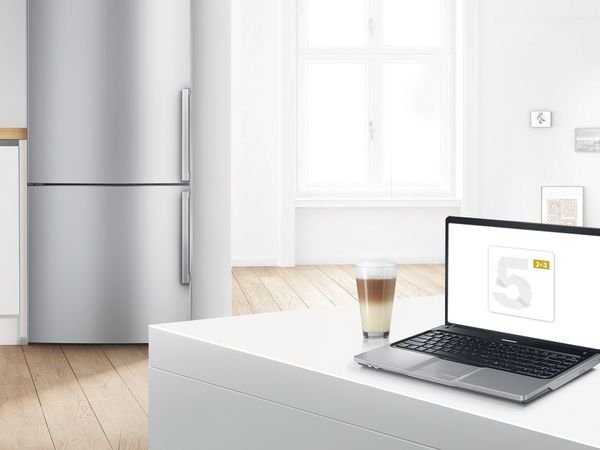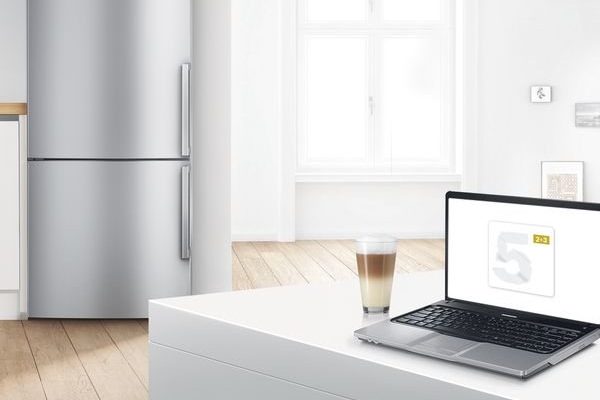
Honestly, this is where a lot of people get stuck. Online warranty registration sounds efficient—no mailing forms, no waiting in line, just a few clicks, and done. But with news of data breaches and hackers always swirling around, you’d be right to ask, “Are online warranty registrations for Bosch kitchen appliances actually safe?” Let’s get into the nitty-gritty and figure out how safe this process really is, what to look out for, and some tips for protecting yourself.
How Does Online Warranty Registration For Bosch Appliances Work?
Let me start by walking you through what actually happens when you register a Bosch kitchen appliance online. It’s much like setting up a new account on your favorite shopping site, but with a few unique steps. Usually, you’ll find a warranty card or pamphlet in the appliance box with a web address (sometimes even a QR code) pointing you to Bosch’s official registration page.
You’ll be asked to enter a bunch of details—things like your name, contact info, the appliance’s model and serial number, purchase date, and maybe the store you bought it from. Sometimes, the process feels a bit like filling out a digital birth certificate for your dishwasher or oven. You might also create an account on Bosch’s website, which could involve syncing up your email for battery alerts or troubleshooting notifications.
While it’s usually straightforward, it’s worth mentioning that Bosch (and other appliance brands) ask for this info to keep track of warranty coverage, help with future code-based support, and streamline the process if you ever need service. The real question is: where does all this data go, and how is it kept safe once you hit “Submit?”
Why Brands Like Bosch Push For Online Warranty Registration
You might be wondering, “Why can’t I just send in a paper form like in the old days?” There’s a pretty simple reason: efficiency. For Bosch, managing warranties online isn’t just about convenience for the user—it’s about streamlining their own operations.
When you register online, your details land directly in Bosch’s database. This helps them do a few things:
- Quickly verify your warranty status in the future (speeding up repairs or replacements)
- Send you software updates, troubleshooting tips, or recall information directly to your inbox
- Reduce paperwork mistakes—no more deciphering messy handwriting or lost forms
- Offer personalized support based on the exact model you have
From a user’s perspective, it can be nice to have everything in one place. For instance, if you need to reset or sync your Bosch appliance, that account can hold manuals, how-to guides, or troubleshooting checklists. But this convenience comes with some new risks—mainly, cybersecurity ones.
Risks Involved With Online Warranty Registration
Here’s the thing: Any time you enter personal information online—even on a trusted site—there’s a potential risk. Bosch, like most big brands, takes data security seriously. But the internet isn’t a perfectly locked-down vault.
Common risks include:
- Data breaches—if a hacker gets into Bosch’s systems, your personal details could, in theory, be exposed.
- Phishing scams—sometimes fake sites pop up pretending to be the official Bosch registration page, tricking users into entering details.
- Weak passwords—if you use the same password everywhere, a leak from one site can compromise many accounts (not just Bosch).
It’s easy to think, “It’ll never happen to me.” But imagine registering your new oven, only to receive a strange email asking you to “confirm your warranty” by entering your info again. That’s a classic phishing trap—and it happens more often than you might think.
Tip: Always double-check the website address before entering any personal info. The real Bosch warranty page will be on an official Bosch domain (like bosch-home.com).
How Bosch Protects Your Information Online
Let me explain what Bosch does, behind the curtain, to keep your online warranty registration safe. Like most reputable companies, Bosch uses layered security practices to safeguard user information.
Here’s what typically happens:
- Secure website encryption (HTTPS)—This scrambles your data as it travels from your browser to Bosch’s servers, making it unreadable to eavesdroppers.
- Authentication codes and account verification—You might be asked to verify your email address, which helps ensure you’re really the one signing up.
- Firewall and security updates—Bosch regularly updates their systems to patch vulnerabilities and keep hackers at bay.
- Data privacy policies—These outline exactly how your details are stored, who can access them, and why they’re needed.
Of course, no system is 100% perfect. But Bosch tends to be in the top tier when it comes to cybersecurity—especially compared to smaller, off-brand sites selling universal remote codes or generic appliance accessories.
Steps To Register Your Bosch Appliance Safely Online
If you’ve decided to go ahead and register online (which, honestly, is what most people do these days), there are a few simple steps you can follow to stay as safe as possible.
- Find the official registration page—Use the web address in your physical warranty guide, or navigate directly from Bosch’s main homepage. Don’t just click random links in emails or ads.
- Check for the lock icon—This means the site is secure (look for “https” in the URL).
- Use a strong, unique password if creating an account—Don’t reuse passwords you’ve used elsewhere.
- Never share your serial number or registration details over email—Unless you’re sure you’re talking directly to Bosch support.
- Save a copy or screenshot of your confirmation—In case you need to troubleshoot registration status later.
If you get stuck, need to reset your registration, or notice anything odd (like an unexpected email asking you to pair your appliance or enter a code), it’s smart to contact Bosch customer support directly through their official channels.
What Happens If You Skip Registration?
You might be thinking, “Is it really worth the hassle?” Technically, you don’t have to register your Bosch kitchen appliance online to make your warranty valid—at least not in many countries. The warranty is usually tied to your purchase receipt, not the registration itself.
But skipping online registration means:
- You might not get reminders about maintenance, battery issues, or product recalls.
- It can be harder to sync support or get troubleshooting help—especially if your remote stops working or you need to reset something.
- Proving ownership and coverage may take longer if you ever need a warranty repair.
So, while registration isn’t always strictly required, it does make code-based support, troubleshooting, and service calls much smoother. Honestly, if you’re going to spend hundreds on a Bosch appliance, spending five minutes registering is a smart move—as long as you’re careful about how you do it.
Common Problems (And How To Troubleshoot Them)
Sometimes, you follow every step, but things still go sideways. Maybe the Bosch site doesn’t recognize your serial number, or you never get a confirmation email. Here’s how to tackle these common snags:
- Serial number won’t sync—Make sure you’re entering the right number (double-check the label on the appliance, not just the box).
- Confirmation email is missing—Check your spam or junk folder. Sometimes these get filtered out by accident.
- Site glitches or errors—Try clearing your browser cache, or switch to a different browser. If it still won’t work, there may be a temporary code or server issue on Bosch’s end.
- Lost registration code or details—Reach out to Bosch support. As long as you have your receipt and appliance info, they can usually help you reset or recover your registration.
If all else fails, you can always fall back on the paper form or call Bosch support directly. But in most cases, a bit of patient troubleshooting is all it takes.
Alternatives To Online Registration: Are They Better?
Let’s say you’re still not comfortable handing over your details online. Are old-school options like phone or mail-in registration safer? It really depends on your priorities.
- Phone registration can be more personal, but you still have to share sensitive details over the line. Plus, there’s more room for human error in recording your info.
- Mail-in forms avoid the internet completely, but they’re slow. There’s also a small risk your form gets lost or delayed in transit.
- If you’re comparing it to registering a universal remote or a generic battery, official Bosch registration—online or otherwise—will always be the most secure option for your specific appliance.
In the end, it’s about what makes you feel most comfortable. Online registration, when done on the official Bosch site, is generally very safe. But if you’re extra cautious, going analog is a perfectly valid choice—even if it takes a bit longer.
Registering your Bosch kitchen appliance online is, in most cases, safe—as long as you stick with the official site, double-check the URL, and use a strong password. Bosch goes to great lengths to protect your details, and the convenience it offers can make syncing support, troubleshooting codes, or handling battery and remote issues much easier down the line.
That said, the internet isn’t foolproof, and there’s always a small risk when sharing info online. If you feel more secure using an alternative method, Bosch still has your back. For most people, though, the benefits of quick online registration outweigh the risks—especially if you take a few simple precautions. So go ahead, protect that shiny new appliance, and enjoy the peace of mind that comes with it.
